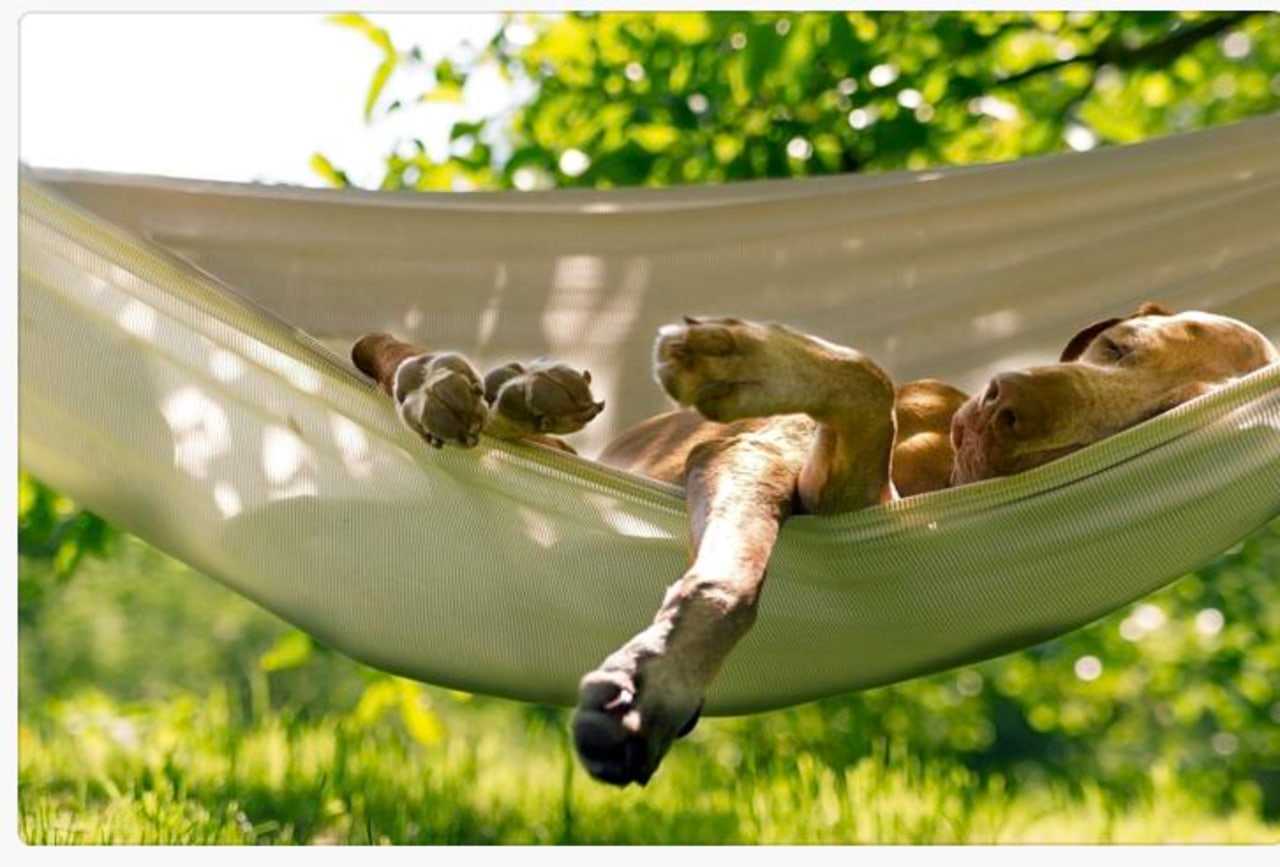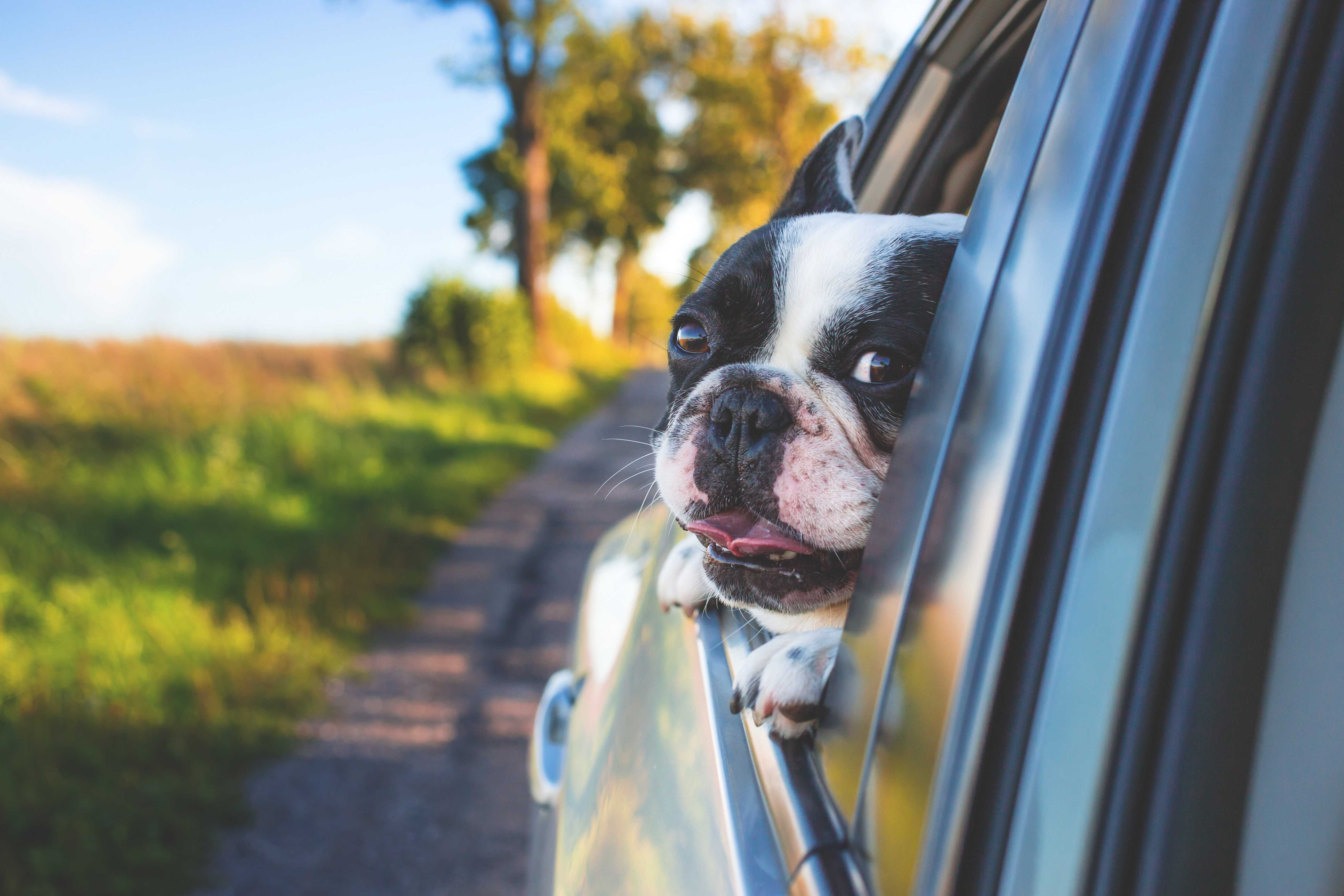Camping with Dogs
Nobody wants to leave their canine friends behind when they go on holiday – and if you follow our simple tips on how to make a camping break a safe and fun trip for them, there’s no reason why your dog(s) can’t join you on your next adventure under canvas. We’ve put together some useful suggestions to make life easy for you.
Getting ready for a camping trip with your dog
Eight tips for camping with your dog
How to camp with your dog in a tent
Dog safety tips to consider when camping

Getting ready for a camping trip with your dog
Not every campsite is pet-friendly, so your first task is to find one that welcomes dogs. Luckily, Pitchup.com makes that task very simple for you. Simply use the ‘dogs allowed’ filter on the booking page, and you’ll see all the sites that accept canines. There are hundreds of dog-friendly campsites, glampsites and caravan parks in England, Wales, Scotland and Northern Ireland.
While there’s usually running cold water on campsites, so you can refill water bowls, some sites go well beyond just accepting dogs. Popular facilities include secure dog-exercise areas where you can let your pet off its lead, dedicated showers for washing down your dogs after a day out in the open air and doggie treats in a welcome pack on your arrival.
When you’ve found a suitable site, what’s next to ensure the comfort and safety of your dog while on the pitches? You’ll need to consider the following:
Before you book your camping holiday, schedule a vet’s appointment to:
-
Make sure your dog’s vaccinations and certificates are all up to date
-
Make sure the dog has tick and flea protection
-
Make sure your dog is microchipped
-
Make sure you have sufficient supplies of any canine medication
-
Make a note of the contact details of a vet local to your campsite
-
Prepare a first-aid kit for your dog
Plan your camping trip in advance
-
Reserve your dog-friendly campsite early, especially in school holidays, at Easter and on bank holidays.
-
Always check the campsite facilities to see if the pitches have any designated dog zones; some sites have designated dog-walking areas or tracks, while others may have dedicated off-lead exercise fields where they can have a run around.
-
Look out for any extra nightly costs for taking your dog camping. Generally, however, this will be cheaper than the cost of kennels.

Eight tips for camping with your dog
1. What to pack for camping with a dog
As well as your camping supplies, dog-friendly camping breaks require you to pack everything your dog needs to be kept safe and happy. This handy list will mean you don’t leave something essential at home – and also that your dog will be surrounded by familiar things. So you know where everything is, pack your dog’s belongings in a separate bag.
-
Collar and lead: you must keep your dogs under control at the pitches – and that’s particularly the case on farm campsites with livestock. Take spares as a back up.
-
A dog stake and a long lead: both will give the dog some scope to move around while you’re on site, without the worry that they’ll disappear into your neighbour’s tent.
-
Treats and toys: keep your dog distracted and settled with extra treats or familiar toys while they get used to being at the campsite.
-
Food: pack an adequate supply of your usual dog food when you take dogs camping so they stick to their normal diet.
-
Bowls: pack a couple of bowls for food and water, and a can opener if you're using tinned food. Collapsible bowls are handy for saving space in the car and for popping in your bag on day trips.
-
Towels: take towels to wipe muddy paws or dry off dogs after they’ve been out on their day's adventure.
-
Poo bags: always pick up after your dog, no matter where you are, and dispose of the waste responsibly. UK law stipulates on-the-spot fines or prosecution to a maximum fine of £1,000 for not cleaning up after dogs.
-
ID: it’s now a legal requirement for dogs to have their contact details on a tag on their collar, and it will save time and trouble should they run off.
-
Dog bed: bring a good thick blanket, a waterproof bed or a crate if your dog normally sleeps in one.
-
Dog coat: if you’re off on an out-of-season break, take a coat if your dog feels the cold.
-
Cool mat: conversely, if you’re heading off to camp in the height of summer, you may need to cool your dog down; pack a cool mat or use an extra tarpaulin to create some shade.
-
First aid kit: pack an emergency bag with antiseptic creams, sterile eyewash, wipes and bandages, as well as a thermometer (to check if your dog is overheating in hot weather) and tick tweezers – especially important if you’re camping near moorland or long grass in summer. Include a supply of any medicine that your dog may be taking, and take its vet records too.
2. Be confident of your dog’s behaviour and recall
-
Make sure your dog is campsite-ready by taking time for some obedience training.
-
While all dogs bark, and most campsite owners (and fellow campers) understand this, no-one wants their camping break spoiled by dogs barking at all hours of day and night, running around and stealing food. Keep your pets firmly under control, especially on farm sites around livestock – and don’t forget that under British law, farmers are entitled to destroy a dog that injures or worries their animals.
-
Likewise, dog-friendly campsites should be places of relaxation for owners, dogs and fellow guests alike. If your pet is likely to be reactive to meeting new dogs and new people in unfamiliar surroundings, it’s kinder (and wiser) to leave your pet at home with a dog-sitter or place them in kennels.
3. Prepare for going camping with your dog
If your pet is fresh to travelling in the car or camping, lead up to your holiday by preparing them and building up their confidence.
-
Practise on-lead obedience training on your daily walks.
-
Get them accustomed to socialising with both canines and humans. If possible, organise a few playdates with other dogs.
-
You may also need to get your dog used to car journeys; if they need encouragement to get in the vehicle, put their bed, toys and treats in the vehicle to tempt them in. Slowly increase the time they spend in the car without becoming distressed, and then move on to short journeys. Travel further each trip until your pet is fully confident and relaxed.
-
If possible, have a trial run by setting up a tent in your garden and sleep in it with your dog. You’ll soon spot any potential problems that need addressing before your camping trip.

4. Keep your dog secure at all times when on site
-
Check the campsite guidelines: do they allow your dog to be off the lead at any time on the pitches? Do they allow retractable leads, or should you buy a dog stake and long lead to keep your pet tethered?
-
Make sure collars fit correctly and leads are in decent condition. Invest in spares in case one set gets lost.
5. Watch out for plant life, animals and other natural hazards
Other campsite guests and dogs are not the only issues you may encounter. Keep an eye out for possible dangers among your natural surroundings.
-
Never let your dog drink from stagnant water and be aware that lakes and ponds may be infected by blue-green algae.
-
Research local flora and know how to identify any potentially poisonous plants before going for walks. It’s surprising how many plants can be toxic to dogs, including bluebells, daffodils, foxgloves, rhododendrons, ivy and holly, all of which you may encounter on woodland walks at various times of the year.
-
Watch out for signs of any allergies. Just like humans, dogs can respond to outdoor allergens. If your dog starts sneezing, scratching distractedly or wheezing, has runny eyes or itchy ears, local pollens could be causing an allergy, and a trip to a vet for some antihistamines may be in order.
-
Check local restrictions so your dog is not endangering indigenous wildlife. Even on common-access land, restrictions often apply to dogs during spring lambing time, the bird-nesting season (April to July) or grouse shooting (August 15 to December 10). You can double-check here if you have any doubts.
6. Never leave your dog unattended
-
Most campsites will not allow you to leave your dog in your tent unattended AT ANY TIME. This is particularly true of glamping site owners, who are within their rights to charge you for any damage your dog causes in their accommodation.
-
Don’t leave your dog alone in your car, in a dog-exercise field or anywhere on the campsite. Your pet may be wonderfully obedient but not all dogs are – and not all people like dogs. Keep your dogs safe by keeping an eye on them at all times
7. Plan plenty of distractions for your dog
Just being outdoors will not be enough stimulation for pets. Doubtless they will love the chance for long walks and lots of alfresco play, but your dog may still get bored. Pack a few of their favourite toys, chews or throws to keep them occupied, and if all else fails, a tennis ball will provide endless hours of amusement.
Plan dog-friendly camping activities like:
-
Long walks
-
Visiting dog-friendly beaches
-
Exploring local parks, nature reserves and forests
-
Playing catch
8. Take a picture of your dog
Last but definitely not least, take a decent picture of your pet just before your camping trip, and print it out as a precaution just in case they get loose at the campsite. You’ll need help finding them, so make sure the photo is clear and straight on, showing coat colour and any distinctive markings or features.
How to camp with your dog in a tent
Where should a dog sleep when you go camping? On the whole, they will adapt to sleeping pretty much anywhere, especially if you are close by; it’s a good idea to bring chew toys so your dog is not tempted to bite guy ropes or any other parts of your tent. They can sleep:
-
In your sleeping bag (great if it’s cold in winter, but if you’re sleeping in an air bed, you might want to make sure their toenails are clipped)
-
In their own bed if there is room in your tent
-
Curled up at your feet
-
In a pop-up dog tent
Alternatively, they might be happier in your car, but you’ll need to have the alarm on for security, and in summer you'll need to leave the windows open overnight.
Wherever you decide your dog will sleep, be sure to check whether they are cool or warm enough, depending on what time of year you’re travelling.
What do I do with the dog poo when camping in a tent?
Always take a copious amount of poo bags with you to pick up dog waste, and dispose of them in designated dog-waste bins. If there are no bins on your site, place the waste in a neoprene dicky bag (they are often fragranced) until you find somewhere to dispose of it. Don’t bury dog poo on private land or campsites.
Dog safety tips to consider when camping
While camping is a good bonding experience for your dog and you, there are still things that should be considered to ensure your dog is safe during your trip.
Camping with your dog in hot weather
-
Always, always have a supply of cold drinking water available for your dog.
-
If your campsite doesn’t offer natural shade, create some for both you and your dog. String up a tarp between trees or bring a sun shade from home – that’s especially important during hot and sunny weather.
-
In hot weather, pack a foldable, gel-filled cooling mat. Here are more details on packing for camping with a dog.
-
While grassy meadows, moorland tracks and the forest floor won’t get as hot as tarmac roads or pavements, paw protectors are useful to protect sensitive pads from rugged terrain as well as save them from heat blistering.
-
Use your common sense and don’t go out hiking with your dog at peak heat times (the middle of the day for example). Dogs (particularly dark-coated ones) soon get overheated in the sun, so keep them in the shade during the hottest part of the day, and always keep cold water accessible.
Watch your dog carefully for symptoms of overheating. They are:
-
Panting
-
Heavy breathing
-
Restlessness
-
Weakness
-
Disorientation
-
Agitation
-
Dry gums
-
Bright red tongue
If your dog is experiencing any of these symptoms, move it to a cool, shaded location with access to cold water. If your dog is lethargic or struggling to breathe, they might be suffering from heat stroke and will need to visit an emergency vet.
Camping with your dog in cold weather
Winter weather shouldn’t be a barrier to enjoying some outdoors time with your dog. If you’re looking to go camping in winter, follow the following rules to make sure your dog keeps warm. With the exception of breeds like malamutes and huskies that are bred for cold, most dogs will need a bit of extra help to stay warm in cold weather.
-
Let them sleep in your tent or pod for extra warmth (that works both ways, as their body warmth will help you keep cosy too).
-
Pack a waterproof or fleece-lined dog jacket for extra insulation. Bring spares in case one gets soaked through.
-
Pack extra towels to wipe down wet dogs.
-
Take your pet’s bed and lay a tarp underneath it so there is a protective layer between the dog and the cold ground. Take wool or fleece blankets or consider buying a dog sleeping bag for extra warmth.
-
Paw protectors will protect their pads from cracking after exposure to ice and snow.
-
If your dog doesn’t take to wearing protective shoes, check between their paw pads for ice balls if you’ve been walking in snow and wipe them dry, or use paw wax to protect them from the cold.
-
Keep an eye out for doggie hypothermia. Signs include:
-
Slow breathing
-
Shivering
-
Stumbling
-
Whimpering
-
Feeling cold to the touch
-
Dilated pupils
If your pet shows any of these symptoms, warm them up at once with blankets or a sleeping bag and visit a vet if the symptoms persist.
Book dog-friendly campsites on Pitchup
FAQs for camping with a dog
Are there dog-friendly campsites on Pitchup?
Yes – and booking one couldn’t be easier. Just use the ‘dogs allowed’ filter on the booking page and you’ll see hundreds of pet-friendly options throughout the UK.
Can I leave my dog alone in a tent, caravan or glamping pod?
Most campsites, glamping sites and pod owners will not allow you to leave your dog unattended in their accommodation, both to prevent damage to the accommodation and for the safety and welfare of your dog.
What are the best places to go camping with a dog?
As long as your preferred campsite is dog-friendly, your canine chums can go anywhere with you. Here are some suggestions for you.
-
Near a beach that is dog-friendly all year around
-
Close to open ground where you can let them off lead safely
-
In proximity to long-distance hiking trails
-
On farm sites with designated dog walks or off-lead fields
-
Somewhere with dog-friendly pubs within walking distance
Pitchup’s dog-friendly campsites
Should I go camping with a dog in hot weather?
As long as you are careful, your dog can safely come with you if you’re camping in hot weather. When the weather is hot, your tent is a cooling, shady shelter for an overheated dog after walks or playtime – and always make sure your pets have an adequate supply of cold water available.